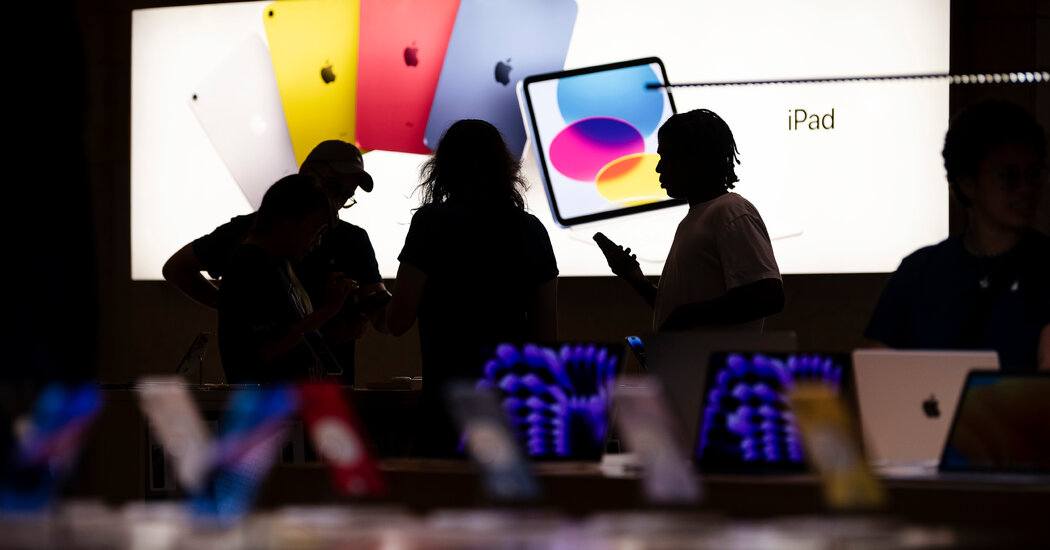The Justice Department’s lawsuit against Apple is the latest in a series of regulatory actions that are hitting the tech giant at the same time.
For more than a decade, Apple could do almost no wrong. The iPhone made it the world’s most valuable company. The App Store helped launch businesses such as Uber and Airbnb. And the company’s new products made it a player in health, Hollywood and finance.
Now, the difficulties are piling up. The Justice Department filed an antitrust lawsuit against Apple on Thursday for giving its own products advantages that it deprived rivals of having. The suit is the latest in a series of actions brought against the company by regulators on three continents.
The troubles are testing the resiliency of Apple’s brand and undermining its business dominance, even though Apple’s products remain popular and continue to power an extremely profitable business. The company reported $97 billion in profit last year on $386 billion in sales.
Here’s a look at the challenges ahead.
U.S. v. Apple
The Justice Department filed a sweeping antitrust lawsuit against Apple on Thursday that takes direct aim at the company’s most important business: the iPhone. The government argued in an 88-page lawsuit that Apple broke antitrust laws by preventing other companies from offering applications that compete with Apple products, like its digital wallet.
The suit follows a yearslong investigation into Apple that focused on the ways that the company has controlled the user experience on iPhones and other devices to create what critics call an uneven playing field. It has granted its own products and services access to core features like its NFC chip and notification system that it denies rivals like PayPal and Garmin smartwatches.
It could be months before the case goes to trial.
European Regulators v. Apple
On March 4, the European Commission fined Apple 1.8 billion euros ($1.95 billion) for thwarting competition by preventing music streaming rivals from offering users promotions and subscription upgrades. Because Apple is the sole gatekeeper controlling developers’ access to iPhone customers, European regulators said that it wrote the rules for the App Store in ways that allowed Apple Music to offer benefits that it denied rivals like Spotify.
